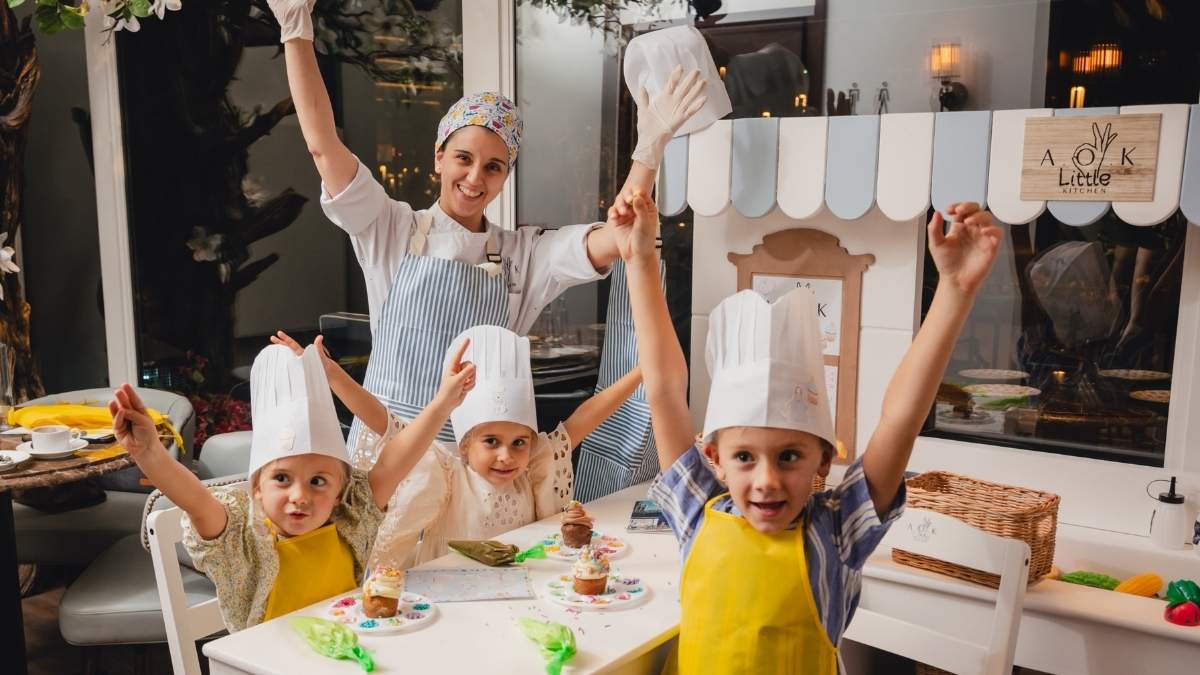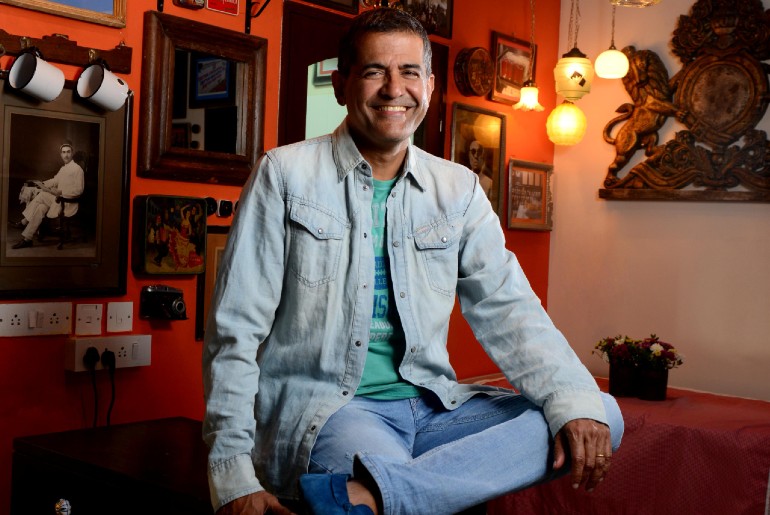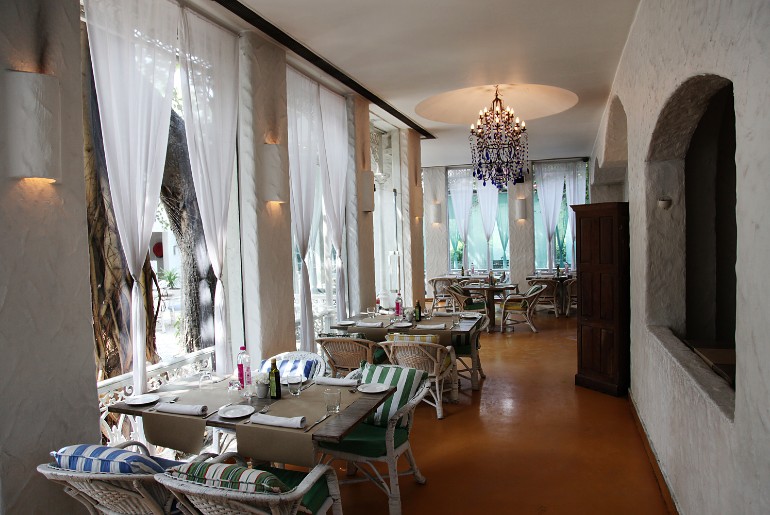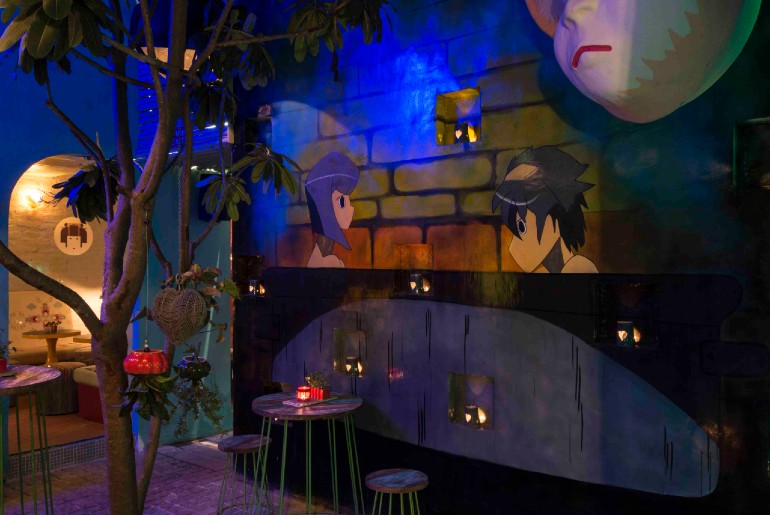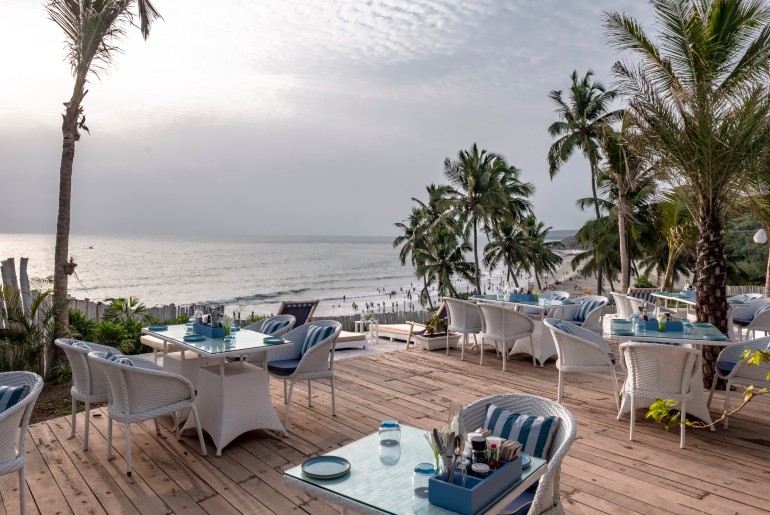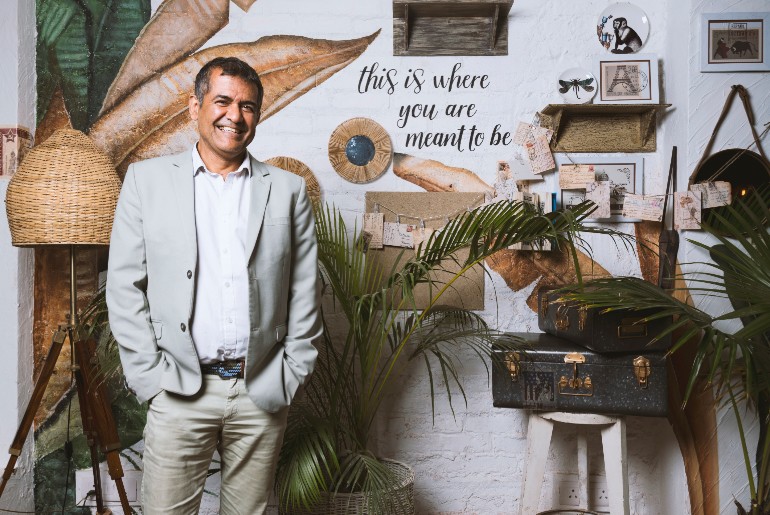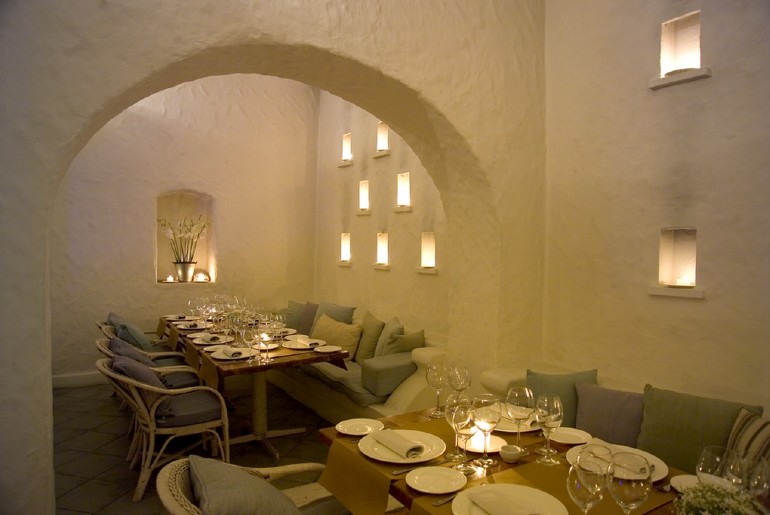Some of our favourite restaurants and bars have temporarily shut shop due to the pandemic. Which makes us now wonder, when will we be able to eat out again, and if it’s going to be the same? To answer those questions, we got a chance to have a conversation with Mr. AD Singh, the managing director of Olive Group of restaurants, who is also an executive member of the National Restaurant Association of India (NRAI). He was able to shed some light on what the restauranteurs and the industry is going through. However, despite all of the hard times, there is still hope and it might change the face of dining in India completely, he shares his insights.
1. So Mr Singh, how does it feel like to be a restaurateur who’s been living a life of lockdown?
So our industry is 24×7 working. And I have been seeing so many people having a great time. living with kids, chilling out with family. Unfortunately for us, the responsibility of carrying all the staff and the company, with all our restaurants shut down, trying to figure how to get it back and it’s actually been a very hectic two and a half months. So, I can say it’s been more hectic, more stressful than normal times are. I miss the socialising and I miss being at my restaurants, meeting my teams, ideating, seeing how it’s going.
2. Olive Group of restaurants is a large group. So, if you could give us a sense of the staff that you have, and currently the people who are working at this point of time.
We are just under 1500 staff at many different levels, spread across the country. We made a good decision and closed ahead of the lockdown. Some boys continued to be in the city. The moment the transport opened, 80% of our teams are back home with their families, which is great.
3. It’s good to be safe at this point of time. We couldn’t agree more. So, Mr. Singh, are all your restaurants doing home delivery in all the major cities?
No, to be honest, when the lockdown started because of the worries about virus, I was a bit cautious. I didn’t want any of my teams to fall ill. It wasn’t clear how bad it could be, whether the treatment was available, how dangerous it was. So I didn’t want to risk anything; delivery boys or customers. So we were very slow. We actually hadn’t started delivery until two weeks ago. Then, we started with Fatty Bao in Bangalore, then the SodaBottleOpenerWaala in Delhi, Hyderabad. Just started the Olive in Delhi and The Grammar Room as well. Over the next three-four days, we will start with four more of our restaurants opening up for delivery.
4. That’s great! Are there certain safety measures that you all are taking at this point of time, apart from the ones that have already been laid out?
Right now, the number one priority for diners, even better than taste or food, etc is the safety of the establishment and the product. Are they being conscious, are they being thorough, every time being 100 percent; and thank God, we do have the credibility at making sure of it. Chef Manu is itself overseeing it. We have a specialist with us for over a year and she is putting all the steps and processes wherever we book a delivery, and putting them and all the others. So I’d say that every possible step that we could take in terms of screening, in terms of preparation, in terms of packaging, in terms of sending it out, we’ve taken care of it.
5. The restaurant industry was the first to face the brunt of the lockdown. Could you share what was the thought of restaurateurs, that collective body at that point when the shutters came down for the first time?
The entire industry as well as the others, be it travel, retail, movie theatres, they are all struggling because the fear the virus had started spreading in India from January, February and all around the world. The business had started dropping off for everybody as well. Then, there was the fear among our teams, coming to and fro from work, catching it from the others etc. So, the NRAI has advised all of us to close around March 18 – March 19, even prior to the lockdown for the same reasons. 19th March even prior to the lockdown for the same reasons
Also read: Restaurants Need Minimum 66% Seating Capacity To Be Profitable: Zorawar Kalra
6. It’s been a hard time for the whole restaurant industry. There have been major losses and it is expected that over 20 lakh people could have possibly lost their jobs as well. What do you make a sense of the situation and where do you think we are headed now?
That’s really a tough question. The restaurant industry itself employs about 70 lakhs people, all the 70 lakh directly; and I estimate that about two times more indirectly, they are dependent on our business and their family is dependent on them. So shutting down like that, I’m sure it was necessary to curtail the spread of the coronavirus, but it was a huge impact on the working force and our economy is crippled today. There’s very little money, there is a lot of fear. So we areal actually worried about the time it will take to get back to normal. The steps that are required to get everybody there. The Government possibly because of our own financial situation has not been able to give the levels of relief and help businesses survive and help employees survive. I’m on the committee of National Restaurant Association of India (NRAI) which is an umbrella body representing us.
“There’s very little money, there is a lot of fear. So we areal actually worried about the time it will take to get back to normal. The steps that are required to get everybody there. The Government possibly because of our own financial situation has not been able to give the levels of relief and help businesses survive and help employees survive.”
Through the lockdown we’ve been, of course, concerned about how restaurants will be able to survive this period and I’m sure 30-40 percent will not be able to; and side by side I’m very concerned about our employees. Most of the employees that have been with us are like family. For us atleast, they are definitely the pillars on which the Olive Group stands, at all levels. Unfortunately, the last 2-3 years have been very tough for the industry which we’ve seen as external effects
The GST and various other new rules; the highway ban on liquor which affected all of us; as a result, even a company like our, which is among the leaders in the restaurant industry, was going through a hard time. We had no reserves and there was a low level of debt and therefore, we could not and I’d say the 80-85 percent of the restaurant industry will not be in any position to look after their employees, as they would have wanted to through this tough time.
“We had no reserves and there was a low level of debt and therefore, we could not and I’d say the 80-85 percent of the restaurant industry will not be in any position to look after their employees, as they would have wanted to through this tough time.”
So I have spent a third of my time in the lockdown, working with my colleagues, trying to reach the right ears and try and get support for employees through this tough period. i did appreciate. I appreciate the banks allowing them to withdraw from their own PFs, so that’s at least one lifeline that they had. But much more needs to be done. I was personally pleading with the govt., month after month, we have been putting money into the Employees State Insurance Fund (which includes the employee’s contribution and much larger for the company itself), for all those earning under Rs 21,000. These contributions have really mounted up over the years and the size of that right now is ₹94,000 cr. Yes there are free hospitals and medical services for our team. But the corpus has gone much beyond what they need. And if there was any time to disperse any insurance, the time is now. We have never seen a calamity like this. Even if they would have kept some money for all the facilities being provided, but given ₹30,000 to 25 lakh families, they would have made a difference to 25 lakh families. I still am trying to get the govt to do that. As an employer, I am ashamed that I could not do more, the industry could not do more for them.
Also read: One In Four Restaurants In India May Never Reopen Again
7. The restaurant industry need to be commended. Despite everything that we all were going through, there were cloud and community kitchens that were set up. They were doing their own bit in whatever way possible to help out people in so many ways.
I’m proud of the initiative and efforts we have made. We couldn’t have just sat by and see what was happening. Our target now is feeding 1 crore meals in the lockdown. We are a bit over 70 lakhs currently. On the one hand, it’s substantial and I’m really proud of it; on the other hand, it’s a drop in the bucket. At least we have been able to do that. All the restauranteurs put their hands out, opened their kitchens, do whatever they could.
“Our target now is feeding 1 crore meals in the lockdown. We are a bit over 70 lakhs currently.”
I personally, felt that I had a lot of potential to raise funds with various networks I had. We look on ourselves, for sure as a company with a conscience, and I had opened our own initiative years back called Kitchen Against Hunger, where we charged people at some of our restaurants ₹10 on every bill, and then Olive group matches up with ₹10 from its side and you’d be surprised at the end of every year, that’s a quite reasonable amount and we handpick and give it to NGOs and use it mainly for mid-day meals.
The catering committee as well worked very closely with the government and they felt gratified, especially during the early days when they were grappling with the problem. I am also very proud of the industry and NRAI’s efforts to put this all together.
8. Someone who owns multiple restaurants, rental must also be a cause of concern at this point of time, despite extensions?
The two biggest causes of concerns for all restaurants are their rentals and their employees. Obviously landlords have their own financial pressures as well but even for the restaurants it is a matter of survival; and if we all have faith then it is going to be very good for the community. I am gratified that many of the landlords we have been speaking to certainly see that as well. I think, if you have been a good tenant, it is in every body’s long term interest, that you survive. Given the current scenario, the demand is going to fall, and I think it is in everybody’s interest that we work together, because alone neither can survive.
9. During this period, we saw a lot of restaurants getting innovative with their home-delivery and digital initiatives to communicate with their consumers, as opposed to working with aggregators and delivery platforms. Do you think, restaurants will start developing their own platforms in order to connect with the customers directly?
That’s rather a hot subject. When the aggregators started off, I was actually encouraging and very supportive so I could see us working hand and in hand in future; that they will help drive traffic to the restaurants. But unfortunately, with time, the restaurant industry has a view that has been my view as well, that their model, and their way of looking at the business, it’s not a win-win for them and for us. They are alienating us from our customers. They are driving a model which thrives on deep discounts and deals and these steps are not in the interest of the restraint community. We are finding a sharp divide between us and our customers and this cannot work as a long term for us.
We have put our foot down and I have put it out there as best as I could, that for a business founded in the backs of the restaurant, you need to create a model and work closely with us, so that we all can survive together. If you continue to have this model, then we are going to move away from you. During the lockdown, many good companies have perfected their models to felicitate our businesses and the support that we need. They have been presenting it to us. The NRAI is listening to it and have narrowed down a couple to work with. The rates, are of course, much lower and not exactly the same as the aggregators. That is the approach that the restaurant industry is going to move towards.
Also read: Home Delivery Of Beer To See A Rise In Female Consumers: Bira 91, Global Marketing Head
10. Do you think there is going to be drastic change in the behavioural pattern of consumers and the way they are going to dine-out again?
So there’s no doubt that the virus has really scared everybody. And I think today and when the lockdown ends, it will be more cautious to go back to the habits they had before for sure. Having said that, I think man is a social animal. No doubt. We really do enjoy going out, eating with friends and families, we do enjoy being seen and seeing, we do enjoy having that delicious meal that adds to experience. It’s a very important part of our lives or distress time. It helps us with all the balance in our lives, with all the pressures of our work etc; so I’m hopeful that over a period of time, people will come back to patronising restaurants and bars, clubs, theatres everywhere like they used to. Just being more careful. Obviously, the restaurants will have to respect that new regality for what it is today or may be in 6 months. We have to respect that and work with that. We have to maximise the safety for our customers and once we are doing that, customers have that comfort, I’m hopeful, the entire industry is hopeful that things will get back to normal like they were.
With work from becoming the new norm, the demographic of areas like Nariman Point, Cyberhub, BKC will change too, as they will be spending more time at home. But people would still want to go out an experience things and eat out.
11. Keeping all these things in mind, how long do you think will take for the restaurant industry to bounce back?
We are hopeful, by this winter, by January, they should be reasonably be close to where they were before and business should be back and restaurant survival should be back on track.
12. Do you think, how a restaurant operates, also, is going to change? In terms of the map of the place, the seating, the menu, experiences and the capacity?
The customer knows exactly what he wants. What he is looking for, what they appreciate. The steps that we all have to take now to give the customers their safety and comfort, will reduce the experience a bit. The temperature check when you come in, there’s a certain distance, between tables, not being able to chat to your server; so the sense of freedom is going to make a lot of difference. No bar nights, no Thursday nights at the Olive in Bandra which has been legendary that has ben going for over 19 years now and people still used to look forward to it. Hangout on Sunday nights, catch up with their friends. All that will definitely change for quite a while. But human being is adaptive.
Also read: This Could Possibly Be The ‘New Normal’ Of Dining In India
I’d say that most of our restaurateurs, we are working hard on the basic experiences that would we would provide to our customers along with the slight inconvenience of the measures that are being put in place. I am hopeful that for the customers, the experience will be just as good as it ever been, if not more fun, more creative. With respect to the menus you’re asking, you have to realise also that the supply chain has also strongly affected as well. Customers patterns are changing. They might just want to come in for a little while, less time, may not want to linger, so all that is going into the thinking of our teams. Our menus are being reworked on, so that it can be more in sync with what customers are looking for today. Definitely, most of our menus will be trimmed, because availability will be less, of imported produce in bigger places like Olive, will be difficult, so they will simply move to local as far as possible.
Trimming of menus and aligning our customers, to the menu that they are looking for and also, of course, the use of technology, so to be able to better give customers, many of the facilities that they would want. Being able to order on the way there, contactless dining and being able to pay that way as well. So we all are working on the technology that we can offer to our customers now.
13. It’s something new and we look forward to experiencing this. Are we going to see that less number of people are going to indulge themselves in discovery or are they going to continue to be loyalists of a particular place?
I think there are going to be two changes. One, I feel, is that customers are comfortable with the system and processes that the restaurant has put in place. They will be reluctant to try another one, because every time they may change, they might have to get to understand what the management is doing so, that should help in loyalty.
The second is, in the last four years the industry has really boomed, for many many reasons, and therefore everybody has been opening restaurants. This is an exciting industry for people. Looks very glamorous and profitable from the outside, so everybody jumps into it. But the reality is not the same. Like me or those who have a passion for it, I have been doing it for 30 years; but it’s a tough industry too. You have to know what you are doing, day after day, meal, after meal, bite after bite. I imagine is going to happen, that a lot of pubs and shops that were not properly planned or do not have the basic set up in place what customers need now will close. So it will be a tighter set of restaurants which I think should help those who are able to do it right, and are able to get customers what they need. That should help them survive even in the times that we are facing right now.
First Published: June 11, 2020 12:15 PM



